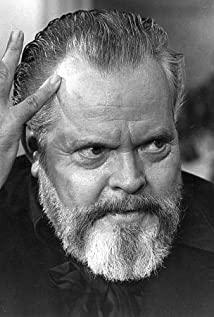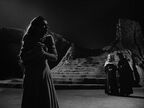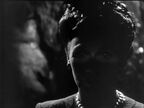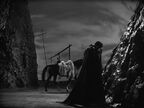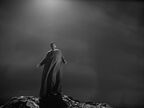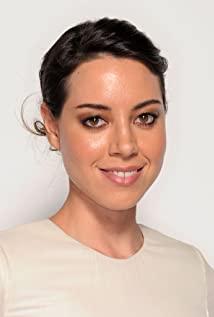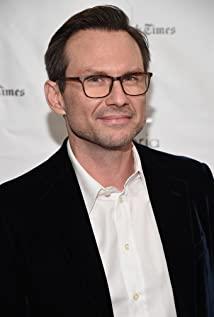Orson Welles' early stage of acting
In 1934, self-edited and directed the short film "The Heart of the Times". In 1938, he wrote and directed the comedy short film "Johnson's Letter".
On July 11, 1937, the documentary film "Spain Land" was released in the United States.
In 1938, the self-written, directed and acted drama "Johnson's Letter" was released in the United States.
On September 5, 1941, the self-written and self-directed drama "Citizen Harry Kane" was released in the United States.
On February 12, 1943, the self-written and self-directed feature film "Long Night A Long Road" was released in the United States.
On May 25, 1946, the self-written and directed crime film "Stranger" was released in the United States.
On December 24, 1947, the self-written and directed drama "The Lady from Shanghai" was released in France.
On October 1, 1948, the self-written and self-directed feature film "Macbeth" was released in the United States.
On August 19, 1949, the self-written and directed drama "The Dark Lord" was released in the United States
On May 10, 1952, the self-written and directed feature film "Othello" was released in France
In 1955, he wrote and directed the feature film "Rehearsal of Moby-Dick".
On August 11, 1955, the self-written and directed crime drama "Mr. Akatin" was released in the UK.
In 1958, he wrote and directed the feature film "Portrait of Gina".
On April 23, 1958, the self-written and directed crime drama "A Marca da Maldade" was released in the United States.
On January 22, 1960, the directed drama "David and Goliath" was released in Italy.
On June 2, 1967, the directed feature film "Gone Forever" was released in Finland.
On December 21, 1962, the self-written and directed feature film "The Trial" was released in France.
On December 22, 1965, the self-written and self-directed feature film "Midnight Bell" was released in Spain.
On May 24, 1968, the self-written and directed feature film "Immortal Story" was released in France.
On March 4, 1969, the directed crime comedy "Southern Star" was released in France.
In 1969, he wrote and directed the feature film "The Merchant of Venice".
In 1970, the self-written and self-directed drama "Golden Honeymoon" was released in Switzerland; in the same year, the self-written and self-directed feature film "Deep Water".
In 1971, he wrote and directed the feature film "London".
In 1972, the self-written and self-directed drama "Don Quixote" was released in Spain.
On December 11, 1977, the comedy "It Happened One Christmas" in which he participated was released in the United States.
On July 10, 1978, the documentary filming "Filming'Othello'" was released in West Germany.
On November 26, 1999, the self-written and directed short story "Heart of the Times" was released in Taiwan, China.
After finishing his European travels, Wells returned to the United States, and he really broke into it soon., He even participated in the Katherine Cornell company's national tour, his rapid popularity attracted the attention of producer John René Orlando Houseman .
In 1934, Wells dabbled in radio drama again and met a large group of later Mercury Theater partners. This year, Wells married Virginia Nicholson, a socialite and female actor, and later had a daughter. Also this year, Wells and his wife made an 8-minute short film The Hearts of Age.
In 1936, as part of The Roosevelt New Deal , the Federal Theater Program allowed some long-unemployed theater workers to find jobs. Wells was hired by John René Orlando Houseman. The first play was a program to help black people. Facing an almost full black lineup, Wells lined up "Macbeth" . The play was a big success and went on a national tour. This event was later regarded as a milestone in the history of American black stage dramas. The 20-year-old Wells was touted as a genius in the theater circle. After the great success of "Macbeth", Wells successively rehearsed "Faust" and the satire Horse Eats Hat.
In 1937, the Director of Wells produced another very successful play, Marc Blitzstein’s worker-themed play The Cradle Will Rock. Out of worries about leftist forces, the government blocked the play in every possible way, but Wells and René Orlando Houseman overcame numerous difficulties and once again gained a sensation.
In the summer of 1937, 22-year-old Wells and 35-year-old John René Orlando Houseman established their own Mercury Theater in New York. Some outstanding talents soon gathered around them, including Agnes Mulhead, Joseph Cotten , George Culleris, Ray Collins, Frank Readick, Everett Sloane, Eustace Wyatt, Erskine Sanford, Bernard Herrmann, etc. Many of them later worked for Wells for many years and became his reliable team.
The first play of the Mercury Troupe was William Shakespeare's " the life and death of Julius Caesar ". Wells joined the satire and innuendo of the Italian fascist regime, which was a great success after the show. At the same time, Wells is also very active on the radio, first as a radio actor, and later as a producer and director. He played Hamlet in a CBS radio drama. His radio play also includes "Les Misérables" .
In 1938, according to H. G. Wells ’ original work performed in the radio drama "The War of the Universe." What really made him famous is the famous radio drama from "War of the worlds: Martians attack the earth". At 8 pm on October 30, 1938, the broadcaster used the method of a drama documentary to imitate the tone of the live report to announce to the audience that the Martians are invading the earth and massacring human beings. The National Guard was completely destroyed by the Martian troops. Annihilated, the President has declared a state of emergency in the United States.
Orson Welles Hollywood Period
The radio drama " War of the worlds " opened the door to Hollywood for Wells. Raidenhua (RKO) gave him a very generous contract, even including the final editing rights of the film.
Wells planned to adapt Joseph Conrad 's novel "" as a starting point. He even designed the protagonist's subjective perspective throughout the entire adventure, but after the budget was made, Raiden China began to calm down and rejected the inevitable of Wells. Costly requirements. Then Wells proposed to shoot Nicholas Blake's anti-fascist novel The Smiler with the Knife, which also failed. According to Wells, it was because the company executives did not have confidence in his chosen female number one, Lucille Désirée Ball .
Since he has been unable to find a subject that satisfies all parties, Wells is very worried that Raidenhua will shake his confidence. He hurry up, and the screenwriter Josepb L. (previously wrote the radio drama The Campbell Playhouse for Wells) brewed one. The story was originally named "John Q", and later changed to "The American". Raidenhua’s boss George Shaffer decided to change it to " Citizen Harry Kane ."
Josepb L.'s creativity comes from the life of William Randolph Hirst. His mistress Marion Davies and Hirst are good friends. Of course, the protagonist also has some shadows of Robert McCormick and Joseph Pulitzer. Wells’s idea was to show different aspects of the protagonist from the perspective of multiple people. He drove Josepb L. to write the script according to his own ideas. René Orlando Houseman also contributed to the completion of the script. Wells added at least three scenes to Josepb L.'s script and made a big change. The protagonist Harry Kane 's childhood was part of Wells' own experience. On Oscars , although "Citizen Harry Kane" received nine nominations in one fell swoop, it only won the best original screenplay award.
In 1944, Wells directed a new radio play. In 1945, starred in the tragic film Tomorrow Is Forever with Lily . Although he did not want anyone to ask him to be the Director, his reputation as an excellent actor was recognized in Hollywood. During this period, in addition to continuing his work in radio dramas, he also wrote a column on politics and Hollywood for the " New York Post ".
After World War II, Wells directed a black thriller "stranger" (The Stranger) about hunting down Nazi war criminals . According to his original intention, his old partner, Agnes Moorehead, was to play the role of an FBI agent, but the producers flatly refused. They hired Warner Bros. 's veteran gangster Edward G. Robinson to replace him .
1944 "It's True" (in Latin America, color film, unfinished); "Jane Eyre". In 1946 starred in the movie "stranger".
In 1947, Wells filmed " The Lady from Shanghai " for Columbia Company and served as the screenwriter of the film. The film was co-starred by Wells and his wife Rita Hayworth at the time . Wells cut Hayworth's hair short and bleached it white, which caused a lot of controversy. "The Lady from Shanghai" was finally made, and Harry Cohen was worried that the film would ruin his star, so he decided to temporarily refrigerate it, and finally postponed its release for a year.
In 1948, Wells finally convinced Republic Pictures to let him direct and write the low-cost film "Macbeth". This time he cut 20 minutes at the studio's request, but the box office still failed.
Orson Welles European Period
In 1947, the frustrated Wells left the United States. The superficial claim was that he was doing it for freedom of choice. However, according to later conclusive evidence, the FBI believed that he was a communist under the uproar of the Hearst camp for many years. So he was investigated, Wells has been included in Hollywood's blacklist, which may be the main reason why he left the United States.
When I went to Italy to shoot "" , compared to the previous work, first of all, this film was exclusively produced by the Mercury Company of Wales. Undoubtedly, the Director firmly grasped the autonomy in his hands. In addition, the filming cycle of "" reached three years, which was obviously painstaking. For. During this period, Wells's film career entered a new stage, that is, in order to not be restricted by the big studios, he kept making other directors' films, earning remuneration for shooting his own films. In the following thirty years, he was still unable to get rid of this situation. During the filming of "", he acted in four films, the most outstanding being " The Third Man " (1949) directed by Carol Reed was rated as the top 100 best films in British film history by the British Film Academy . Wells didn't make many appearances in the film, but he was extremely stunning, especially the line about House of Borgia and Cuckoo Clock, which he wrote himself, was very popular.
"" is obviously more successful than "Macbeth". It was very popular at the Cannes International Film Festival and won the highest award, but it was not released in the United States until 1955. In the subsequent film career, Wells did not stop putting classic literary works on the screen. He began planning and adapting his favorite novel "Don Quijote de la Mancha" in the 1950s, and did not start shooting until the 1970s. But it has not really been completed.
In 1950, Wells was looking for a job in the UK. After the success of the Harry Lime radio series spawned by "The Third Man", he successively produced several radio series.
In 1953, Wells briefly returned to the United States to host a CBS TV show. During the period, the Commissioner of the Internal Revenue Service kept him under constant surveillance. After the show ended, Wells went to the UK again.
The next director's opportunity came in 1955. The producer of the film Mr. Arkadin was Louis Dolivet, Wales' political mentor. The film was filmed in France, Spain, Germany and Italy. This film was later recognized as one of his masterpieces. In the same year, Wells produced two TV series for the director of the BBC television station.
Orson Welles returns to Hollywood
In 1956, Wells returned to Hollywood and hosted a number of TV and radio shows. This time he stayed in the United States for three years. During the three years when Wells returned to the United States, his most important work was " A Marca da Maldade ".
In 1957, Wells happened to make a thriller called "Man in the Shadow" for Universal . He rewrote the scenes about his role in the script, which made the company very satisfied and decided to continue to cooperate with him, but No one would think that he is still suitable to sit in the Director's chair, because the previous heavy box office failures have already left a bad impression on Hollywood. The TV series " Don Quijote de la Mancha " was produced in the same year .
The new film is tentatively titled "Evil Medal". The male number one is the superstar Charlton Heston . The reason Heston took over the role happily was due to a misunderstanding. He thought Wells would direct this new film. Not so, so he suggested to let Wells come to Director. At this time, the people who appreciated Wells among the senior executives of the Universal Company played a role, and Wells successfully got this opportunity.
In 1958, he served as the screenwriter of the movie "Evil Contact". After "A Marca da Maldade", Wells appeared in several films in the following year, such as The Long, Hot Summer (1958), Compulsion (1959), and he was obviously not interested in returning to Hollywood. Satisfied, he decided to return to Europe.
Orson Welles goes to Europe again
After returning to Europe, Wells continued filming "Don Quijote de la Mancha" intermittently. In 1959, he acted in two films in Italy and Hong Kong.
In 1960, he acted in two more films in France and Yugoslavia . At the same time, he returned to the Gate Theatre in Dublin where he had stayed, and lined up a stage play. This stage play integrates the five historical dramas of William Shakespeare, in order to focus on the original supporting role, the current protagonist- Falstaff , this is not the first time Wells wants to do this. In 1939, Wells had already written the script of "Five Kings", combining William Shakespeare 's "Henri IV", "Henri V ", "Henri VI" and " Richard III " into one. But it failed at that time, so this plan has been shelved and became his heart knot. The renamed "Midnight Bell" was staged in Ireland.
At the same time, he finally completed the pre-shooting of "Don Quijote de la Mancha", but he did it for decades in the later period, and he did not complete it until his death. In 1992, the Spanish Director JessFranco cut out a version based on some of the negatives left by Wells, which was not well received.
In 1961, Wells produced a TV series for the Director of the Italian TV station. In 1962, Wells adapted Franz Kafka 's "The Trial", which was filmed in various European countries, starring Tony . During that period, he met female actor OjaKodar. In 1965, Wells finally put "Midnight Bell" on the screen, and his personal role as Falstaff was extremely successful. At the age of 50, he was not yet middle-aged and had to put on thick clothes and old makeup to get close to Falstaff's image. Twenty years later, Wells is a Falstaff without any disguise.
In 1966, Wells produced The Immortal Story for la télévision France Director, which was also shown in French cinemas and was very popular. Four years later, Wells and OjaKodar met again, and the two never separated in life and movies.
Wells was not without the opportunity to bring his career back to life. Francis Ford Coppola and Paramount considered Wells when they were casting for Vito in " The Godfather ". His age, posture, voice, and acting skills are undoubtedly the best choice, but Francis Ford Coppola chose Marlon Brando after repeated weighings . As a result, the person who came back from the dead became Brando.
A few years later, Wells was invited to voice the Black Warrior in George Lucas 's "Star Wars" . This time, he voluntarily refused. There was another chance, Francis Ford Coppola was preparing to shoot " Apocalypse Now ", and he was originally the role of Colonel Kurz . Francis Ford Coppola initially preferred Wells to play Colonel Kurz, but finally chose Marlon Brando, who had worked with him, again, which made Wells miss the role of the Dark Lord again.
In Wells's frustrated old age, the rising stars of the new Hollywood still respected their predecessors. He starred as a brigadier general in Mike Nichols " Catch-22 " (Catch·22) and met the new director Peter Berg Danovic. The two hit it off and they became a happy friendship. Bogdanovic has since become The spokesperson of Wales. Wells did not write an autobiography for life, but he had a long conversation with Peter Bogdanovic , and the publication of "Thisis Orson Wells" (Thisis Orson Wells) was the most important thing to know about Wells. One of the ways.
1966: "Falstaff" ( adapted from William Shakespeare's play " Henri IV ")
1968: "An Immortal Story" (main actors: Jean Moreau, Orson Welles, etc.).
1968: "Navigation Calculation" (unfinished).
In 1969, Wells authorized Cambridge, Massachusetts , the United States to establish a cinema under his own name-Orson Welles Cinema, until 1986.
Orson Welles in his later years
Because he has been receiving invitations from American television stations and studios, and the European tabloids did not let go of his personal relationship with OjaKodar, Wells resolutely abandoned the editing of "Don Quijote de la Mancha" and returned to the United States in 1970. .
He no longer works for major studios, but only participates in small investments in film and TV shooting. He also found himself a star of talk shows. During this period, his main experience focused on completing the filming of The Other Side of the Wind, which cost him a total of Six years, but in the end it was not completed. Many predecessors and juniors who have helped him appear together. In the film, the film tells about the difficulties encountered by the old and losing Director in filming, but it is a reappearance of Wells's own experience. For this film, Wells himself paid 1 million US dollars and raised 1 million US dollars from an Iranian company in Paris. The owner of this company was Medhi Boushehri, the wife and brother of the King of Iran. Spanish investors swept away about $250,000 and disappeared. The Iranian company promised to fill the funding gap, but as a result, they obtained 80% of the film's copyright. They eventually refused to edit the film by Wells. At the same time, a revolution broke out in Iran, the king stepped down, the copy of the film fell into the hands of the new government, and the film left Wales. In 1971, he directed a shorter version of MobyDick, which was not completed in the end. In the same year, AMPAS awarded him an honorary award. Wells pretended not to be in Los Angeles and asked John Huston to take him.
In 1973, Wells completed FforFake. In 1975, the newly established AFI awarded the Wells Lifetime Achievement Award to the Wells Lifetime Achievement Award . At the ceremony, he screened two pieces of The Other Side of the Wind that were about to be completed.
In 1979, Wells made a talk documentary about filming Othello, FilmingOthello. This was filmed for a West German television station, and it was also shown in theaters later.
In addition to appearing on TV shows in his later years, Wells was unable to raise enough funds to start filming a large number of scripts written in his hands. In addition, he has lectured at several film schools in Los Angeles.
On October 10, 1985, Wells died of a heart attack. Although he had expressed his reluctance to be cremated during his lifetime, his body was still cremated under the auspices of his wife and daughter, and his ashes were eventually buried in a dry well in a friend's house in Spain.
